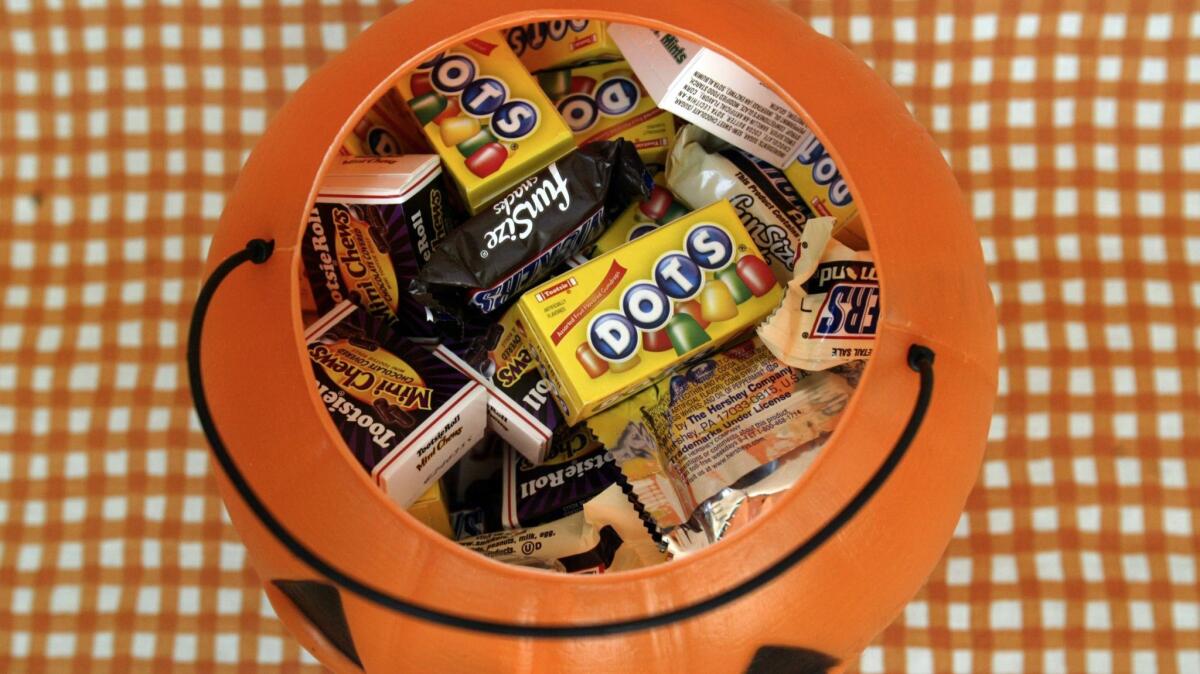Can too much Halloween candy kill you? This is how much it would take

- Share via
If you’ve inhaled so many “fun size” Halloween candies that you feel like you could die, scientists have some good news: That is extremely unlikely.
Of all the ways to go, overdosing on candy might not seem so bad. But death by candy is actually pretty hard to pull off.
In order to give yourself a 50-50 chance of consuming a lethal amount, you’d need to ingest 13.5 grams of sugar for each pound of your body weight — and you’d have to do it all in one sitting, according to the American Chemical Society.
The average American man tips the scales at 195.5 pounds, according to data collected by the Centers for Disease Control and Prevention. At that weight, he would have to eat and drink nearly 2,640 grams of sugar to have equal odds of living or dying.
That translates to 155 “fun size” Snickers bars or 102 “fun size” packages of plain M&Ms.
The threshold is lower for the average American woman, since she weighs 166.2 pounds. In her case, nearly 2,250 grams of sugar would be enough to make life or death equally likely.
To ingest that much sugar, she’d have to eat 214 individual Reese’s peanut butter cups or 1,527 pieces of candy corn.
You might think it would be easy for researchers to find volunteers willing to eat candy for the sake of science. But it simply wouldn’t be ethical to ask people to accept a life-threatening risk — even if it were covered in chocolate.
Instead, scientists feed sugar to rats, increasing the amount until half of the animals are dead. In the medical literature, this lethal dose is known as LD50.
From there, it’s a matter of extrapolating the LD50 for rats into an estimate for people.
If you want to calculate your own LD50, multiply your weight (in pounds) by 13.5, then divide the result by the grams of sugar in the candy of your choice. The answer will tell you how many servings you’d need to eat at once for a coin toss to determine your risk of death.
Follow me on Twitter @LATkarenkaplan and “like” Los Angeles Times Science & Health on Facebook.
MORE IN SCIENCE
This fabric captures energy to power your electronic devices
How scientists proved the wrong man was blamed for bringing HIV to the U.S.
Neuroscientists show how tiny fibs snowball into big lies




